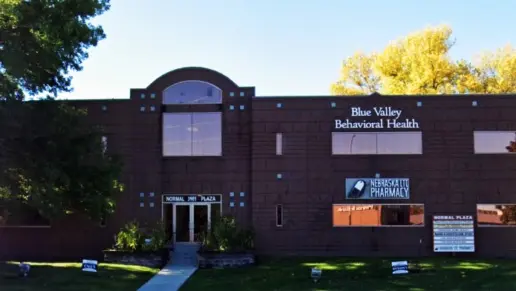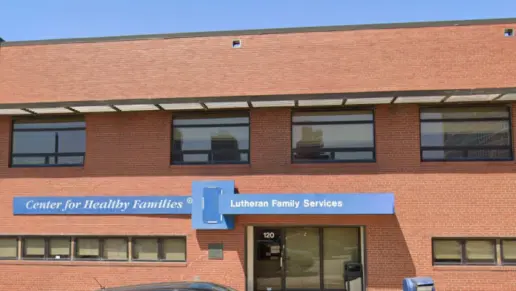Great clinic and helpful staff, love this place.
About Ponca Tribe of Nebraska
Located in Norfolk, Nebraska is the Ponca Tribe of Nebraska outpatient clinic. This clinic serves members of the historic Ponca Tribe. They also provide supportive care to members of different American Indian tribes and other eligible individuals who need medical and behavioral health services.
Serving individuals throughout eastern Nebraska, this organization supports individuals through major cities in the state. If you move from Norfolk to another location then you can continue receiving care through one of their partner clinics.
They offer a continuum of services here ranging from primary care to dental care and behavioral health support. They also offer public health services to indigenous individuals and families.
Their substance abuse recovery program consists of assessments, counseling, specialized therapy and other supports deemed necessary in your case. If you have a co-occurring mental health struggle then they may use medication management to help you tackle emotional triggers that may be leading to your substance use struggles.
Care is culturally competent yet blends evidence based therapies helping you get a rounded approach in your treatment plan. They employ the 12 steps here and you’ll find peer support through groups like Narcotics Anonymous and Alcoholics Anonymous. There’s also a dedicated chemical recovery program for people struggling with opioid use.
Depending on your circumstances, you might need more robust services like residential treatment or recovery in a halfway house. You can get connected to these programs at Ponca Tribe and even receive referrals to a program that might best serve you.
Their Norfolk location is in an accessible part of town and is close to different establishments including the nearby Northeast Community College and the YMCA.
Latest Reviews
Rehab Score
Other Forms of Payment
Medicaid is a state based program that helps lower-income individuals and families pay for healthcare. Medicaid covers addiction treatment so those enrolled can use their coverage to pay for rehab. When a program accepts Medicaid the client often pays very little or nothing out of their own pocket.
Medicare is a federal program that provides health insurance for those 65 and older. It also serves people under 65 with chronic and disabling health challenges. To use Medicare for addiction treatment you need to find a program that accepts Medicare and is in network with your plan. Out of pocket costs and preauthorization requirements vary, so always check with your provider.
Addiction Treatments
Levels of Care
Treatments
Many of those suffering from addiction also suffer from mental or emotional illnesses like schizophrenia, bipolar disorder, depression, or anxiety disorders. Rehab and other substance abuse facilities treating those with a dual diagnosis or co-occurring disorder administer psychiatric treatment to address the person's mental health issue in addition to drug and alcohol rehabilitation.
Mental health rehabs focus on helping individuals recover from mental illnesses like bipolar disorder, clinical depression, anxiety disorders, schizophrenia, and more. Mental health professionals at these facilities are trained to understand and treat mental health issues, both in individual and group settings.
Programs


Clinical Services
Cognitive Behavioral Therapy (CBT) is a therapy modality that focuses on the relationship between one's thoughts, feelings, and behaviors. It is used to establish and allow for healthy responses to thoughts and feelings (instead of unhealthy responses, like using drugs or alcohol). CBT has been proven effective for recovering addicts of all kinds, and is used to strengthen a patient's own self-awareness and ability to self-regulate. CBT allows individuals to monitor their own emotional state, become more adept at communicating with others, and manage stress without needing to engage in substance abuse.
Whether a marriage or other committed relationship, an intimate partnership is one of the most important aspects of a person's life. Drug and alcohol addiction affects both members of a couple in deep and meaningful ways, as does rehab and recovery. Couples therapy and other couples-focused treatment programs are significant parts of exploring triggers of addiction, as well as learning how to build healthy patterns to support ongoing sobriety.
Research clearly demonstrates that recovery is far more successful and sustainable when loved ones like family members participate in rehab and substance abuse treatment. Genetic factors may be at play when it comes to drug and alcohol addiction, as well as mental health issues. Family dynamics often play a critical role in addiction triggers, and if properly educated, family members can be a strong source of support when it comes to rehabilitation.
Group therapy is any therapeutic work that happens in a group (not one-on-one). There are a number of different group therapy modalities, including support groups, experiential therapy, psycho-education, and more. Group therapy involves treatment as well as processing interaction between group members.
In individual therapy, a patient meets one-on-one with a trained psychologist or counselor. Therapy is a pivotal part of effective substance abuse treatment, as it often covers root causes of addiction, including challenges faced by the patient in their social, family, and work/school life.
Trauma therapy addresses traumatic incidents from a client's past that are likely affecting their present-day experience. Trauma is often one of the primary triggers and potential causes of addiction, and can stem from child sexual abuse, domestic violence, having a parent with a mental illness, losing one or both parents at a young age, teenage or adult sexual assault, or any number of other factors. The purpose of trauma therapy is to allow a patient to process trauma and move through and past it, with the help of trained and compassionate mental health professionals.
Contact Information
1800 Syarcuse Avenue
Norfolk, NE 68701


